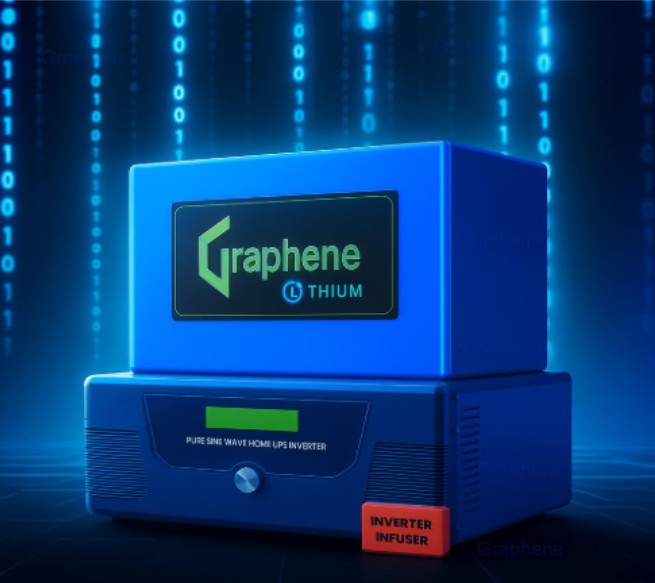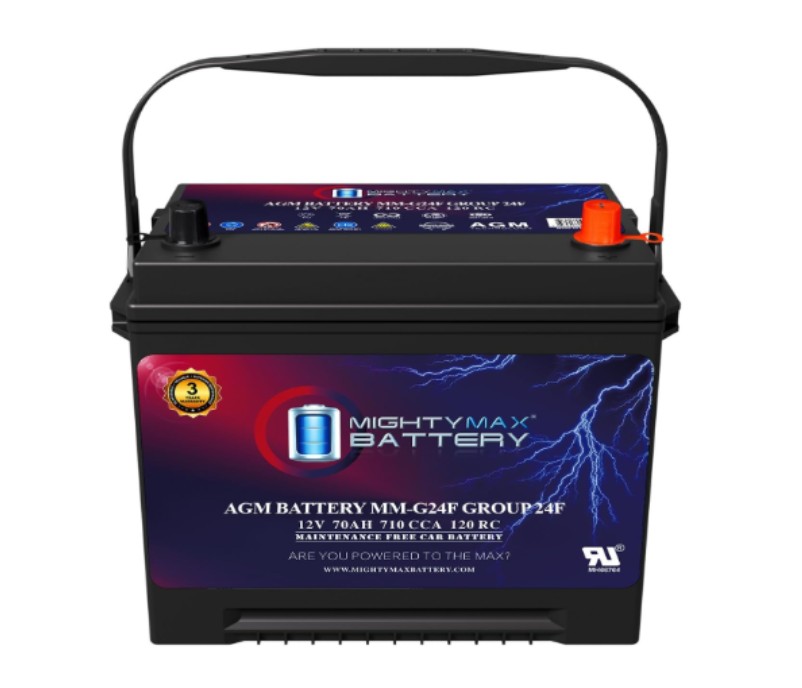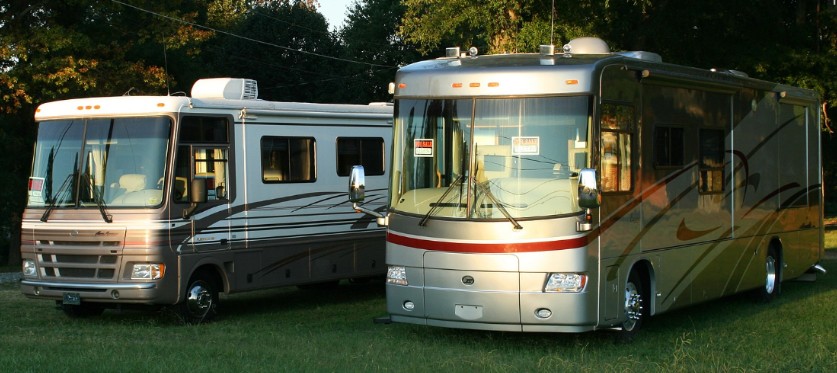Selecting the best RV battery is crucial for any RV owner, whether you’re heading out on a weekend trip or planning an extended off-grid adventure. The right battery will power your lights, appliances, and essential systems, ensuring a smooth experience.
In this guide, we’ll break down the different types of batteries, what you need to consider when choosing one, and top-rated options for your RV.
What is the Best RV Battery for Your Needs?

The best RV battery depends on your needs—whether you’re looking for a camper battery for short trips or a more robust RV deep cycle battery for extended stays off-grid. You’ll want to ensure that your battery suits your RV’s electrical system and your intended use.
When selecting a battery, consider the following:
-
Usage: Are you dry camping, boondocking, or using hookups?
-
Capacity: How much energy will you need to power your RV systems?
-
Maintenance: Are you willing to maintain a traditional lead-acid battery, or would you prefer the low-maintenance benefits of lithium batteries for RV?
Types of RV Batteries: A Comparison
There are three main types of batteries for RVs: AGM (Absorbed Glass Mat), FLA (Flooded Lead Acid), and Lithium Ion. Each has its own pros and cons. Here’s a quick breakdown:
-
AGM batteries: Sealed, spill-proof, and low-maintenance. These are ideal for RVers looking for ease of use and reliability.
-
FLA batteries: The most affordable option but require regular maintenance. 12V RV battery models fall into this category.
-
Lithium Ion batteries: The most advanced, with the longest lifespan and best performance. While they are more expensive, their efficiency and longevity make them a great investment for long-term RV owners.
Choosing Between AGM, FLA, and Lithium Batteries for RV Use

Choosing the right battery type can depend on several factors, including cost, lifespan, and maintenance. Here’s a detailed look:
-
Lithium batteries for RV provide a higher energy capacity, are lighter, and last longer. They also charge faster and are more efficient, making them a top choice for extended off-grid RV use.
-
AGM batteries offer solid performance with low maintenance. They are more affordable than lithium batteries and are the most common choice for RV owners who want a reliable and cost-effective option.
-
FLA batteries are the least expensive but require regular maintenance to ensure they continue working effectively. They can also be bulky and require more space in your RV.
What are the best RV batteries for dry camping?
The best RV batteries for dry camping are typically deep cycle batteries like AGM or lithium RV batteries. These batteries provide sustained power over extended periods and are ideal for off-grid camping where you’re not plugged into external power supply.
How to Choose the Right Size Battery for Your RV

When selecting a battery, it’s crucial to choose the right size for your RV’s electrical demands. Use an RV battery size chart to find the appropriate battery size, based on your needs for voltage and storage capacity.
Typically, 12V RV batteries are the most common and are suitable for a wide range of RVs, especially when paired with deep cycle capabilities.
Battery Size Considerations:
-
Voltage: Ensure that your battery matches the RV’s electrical system requirements. 12V RV batteries are standard for most recreational vehicles.
-
Capacity: Larger RVs or those with more electrical demands (like air conditioning, multiple appliances, etc.) may require larger or multiple batteries to ensure optimal performance.
RV Battery Replacement: What You Need to Know
Replacing your RV house batteries is essential when they start to show signs of wear. Here’s what you need to know about RV battery replacement:
-
Signs of wear: If your battery isn’t holding a charge as well or requires frequent recharging, it may be time for a replacement.
-
Installation tips: Make sure you correctly install the new battery, following manufacturer guidelines to prevent damage to the system.
-
Proper disposal: Always dispose of your old battery properly at a certified recycling facility.
Top-Rated RV Batteries for Off-Grid and Dry Camping
Some of the best batteries for dry camping and off-grid living include 12-volt deep cycle RV batteries and Lithium RV batteries. These provide the power needed for extended stays without a direct power source.
Top Picks:
-
Battle Born Lithium Batteries: Well-known for their long lifespan and efficiency, they’re a top choice for RVers who want the best performance during off-grid stays.
-
Renogy AGM Batteries: Great for those who need a reliable and affordable deep cycle RV battery replacement option.
How to Maintain Your RV Batteries for Long-Term Performance
Maintaining your deep cycle RV batteries is essential to ensure they last. Here are a few tips:
-
Charge regularly: Ensure your batteries stay charged and avoid letting them discharge fully, as it can damage the battery.
-
Clean terminals: Regularly check and clean the terminals to prevent corrosion.
-
Proper storage: If storing your RV for an extended period, remove the batteries and store them in a cool, dry place.
Frequently Asked Questions
1. What are the best RV batteries for dry camping?
The best RV batteries for dry camping are lithium batteries or AGM deep cycle batteries, as they provide long-lasting power and high efficiency, making them ideal for off-grid camping.
2. What size battery do I need for a travel trailer?
The battery size you need for a travel trailer depends on your RV’s electrical system and energy usage. 12V deep cycle RV batteries are standard for most RVs, but you may need additional batteries for larger setups.
3. What is the difference between a lithium battery and AGM for RVs?
Lithium batteries offer a longer lifespan, faster charging, and better efficiency but are more expensive. AGM batteries, on the other hand, are more affordable, require less maintenance, and are a solid choice for most RVers.
4. What is a deep cycle RV battery?
A deep cycle RV battery is designed to provide a steady amount of energy over a long period, making it ideal for RVs that rely on battery power for extended periods, such as during dry camping.
5. What is a lithium RV battery?
A lithium RV battery is a modern type of battery that offers high efficiency, a longer lifespan, and faster charging times. It’s lighter and more durable than traditional lead-acid batteries, making it a great choice for off-grid RV living.
Choose Best Battery For Your RV
Choosing the best RV battery can make all the difference when it comes to power reliability, especially during extended trips or dry camping.
Whether you opt for lithium batteries for RV or AGM deep cycle batteries, understanding your power needs, RV system compatibility, and battery maintenance is key to ensuring your adventures are seamless. With the right battery, you can enjoy more time off the grid and less time worrying about power issues.
Make sure to choose the battery that best fits your specific needs, and don’t forget to maintain it regularly for long-term performance!

